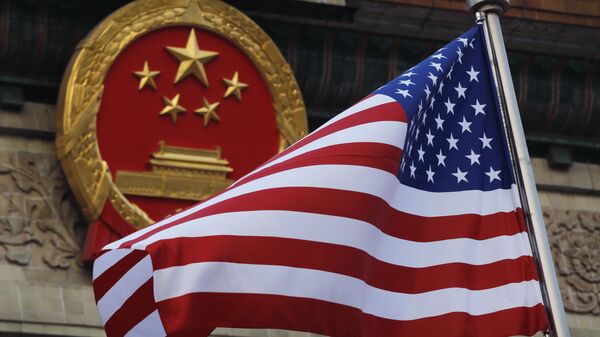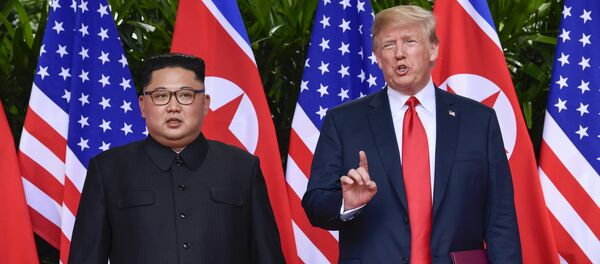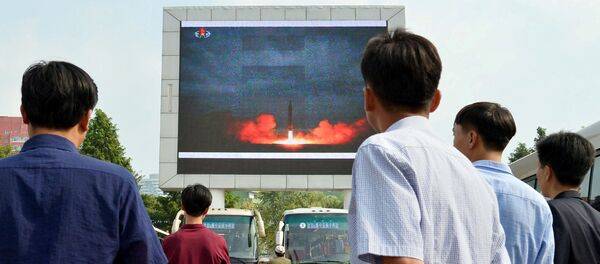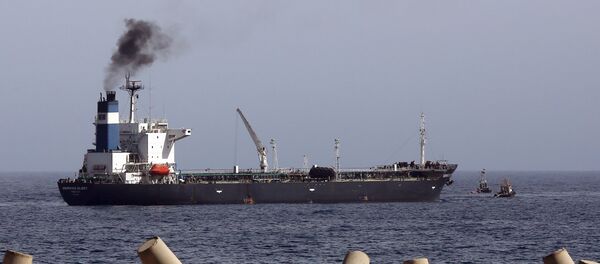US Secretary of State Mike Pompeo has said that North Korea will set a timeline for denuclearization, adding that Pyongyang is behaving in a “manner inconsistent” with one or both of the UN Security Council resolutions.
Sputnik: ASEAN foreign ministers are urging the US and North Korea to step up work towards denuclearization of the Korean Peninsula. What could be expected from Washington and Pyongyang now, considering the latest calls from the US to maintain the sanctions against North Korea? How achievable is a breakthrough?
Stephen Nagy: There are several challenges lying before us. First of all, there’s still no consensus on what the meaning of denuclearization means for North Korea and the United States. They seem to be far apart on this particular definition. For the North, denuclearization still means denuclearization of the entire northeast Asian region, which means the removal of not only North Korean nuclear capabilities but the United States’ nuclear capabilities which include those capabilities that may be in and around the peninsula, including the Sea of Japan as well as Japan. For the United States, denuclearization simply means denuclearization of North Korea. We have a very, very big gap in the understanding of what denuclearization means. So, moving forward it’s difficult to see how the two sides can come together and proceed in a denuclearization process when the starting line and end line for the denuclearization process is so different.
Stephen Nagy: This funding is related to this new concept called Indo-Pacific Strategy in which the United States as well as like-minded countries, including Japan, Australia, India and other countries to some extent, are interested in funding infrastructure projects to compete against China’s large-scale infrastructure project called the BRI (the Belt and Road Initiative). Mike Pompeo announced about $150 million in infrastructure, which really isn’t much on paper, but it’s important for us to understand that the US investment within the region is huge by any statute – it’s about $840 billion, nearly a trillion dollars in private investment within the region; which really says something about the United States’ economic footprint in the Indo-Pacific. This $150 million represents a commitment, but it’s very modest. The United States prefers to use the private sector to continue expanding its economic influence within the region, and bring in like-minded partners. So that they can balance this state-oriented state-led infrastructure expansion and state-funded infrastructure project that is being led by Beijing within the region.
Stephen Nagy: The timing is particularly interesting. If we look at what’s happened over the past year, in particular since President Trump came into power in January 2017, is that he has explicitly ramped up pressure on China in the South China Sea and other areas, and particularly stressed what’s called freedom of navigation operations. These [operations] have been regularized which means that these freedom navigation operations happening in the South China Sea, happen all the time. There’s at least two American naval groups within the South China Sea every day. This is meant to push back against Beijing’s claims of exclusive sovereignty and administrated control over the South China Sea. We have these other factors within the region. We have the North Korean issue; the US trying to put pressure on China and on other countries to denuclearize the North. And we also have the trade war that’s begun this month between China and the United States. From China’s point of view, they’re going to continue to step up pressure on areas that complicate the US’ efforts, particularly North Korea and the South China Sea. What happens is that it dilutes the US diplomatic abilities to put pressure on China and this helps China deal with some of the pressure from the trade war. What China is trying to do and what it’s thinking about is that by diversifying its pressure on the United States, in particular decreasing pressure on North Korea and increasing operations in the South China Sea, it can create the conditions for a bargain that can be pushed forward on the trade negotiations with the United States. It’s trade that’s important for China. China values and prioritizes regional economic stability and security stability so that it can maintain socioeconomic growth; to keep that 1.4 billion people in work and ensure that their rice bowls are provided for. It’s a very complicated picture and we’re going to see continued pressure from the Chinese but also pressure from the United States as they push and pull back and forth to try and achieve their national objectives.
Stephen Nagy: What you’re referring to is a Regional Comprehensive Economic Partnership (RCEP). This partnership, unfortunately or fortunately, has several countries, in particular India, that really are not pro-free trade; they’re not pro-deregulations. The likelihood of this trade agreement coming to fruition is very doubtful.
The views expressed in this article are those of the speaker, and do not necessarily reflect those of Sputnik.






